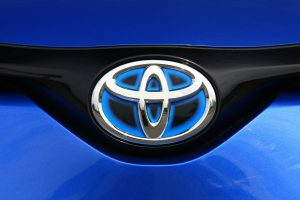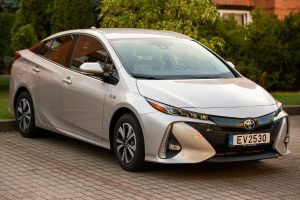Hybrid options are becoming increasing popular combining both energy efficiency and autonomy. Toyota introduced the first hybrid vehicle over 20 years ago. Their 2020 lineup includes seven hybrid models and one fuel cell model. Today, people still have hesitations about owning a hybrid vehicle and there are many misconceptions surrounding hybrid systems. Let's break those down and talk about the myths and misconceptions regarding hybrid vehicles.
Myth #1
Hybrid's are too expensive.
Toyota Hybrids range in price, however their line up include vehicles from compact, mid-size and full-size sedans to mid-size and full-size SUVs. Something for every driver!
Myth #2
Hybrid Vehicles are a new and virtually untested technology.
The the first mass-produced hybrid vehicle, a Prius was launched in Japan in 1997. Toyota’s advanced hybrid technology provides the same legendary efficiency, reliability, and power you have come to expect from Toyota. Toyota will offer a total of 9 hybrid models by year end! The technology for hybrid vehicles is constantly improving and being tested to bring you legendary efficiency, reliability and power.
Myth #3
Hybrid vehicles are not designed for families.
While the majority of hybrid vehicles are compact; however, as research and development continue, an increasing number of hybrid SUV's are becoming popular as well. Full-size Toyota hybrids deliver roomy versatility with ample seating capacity and cargo space, competitive fuel efficiency and countless amenities to keep you and your growing family on the move to your next adventure!
Myth #4
Hybrid vehicles are complicated to drive.
Hybrid vehicles drive the same as any conventional gas powered vehicle, no learning required. Toyota has been selling hybrid vehicles since 1997 and these vehicles have some of the best reliability. A hybrid vehicle switches between gasoline and electric modes all on its own!
Myth #5
Hybrid vehicles won't actually save the environment.
Toyota hybrids emit far less pollution and use less gas than conventional vehicles. Since hybrid vehicles use less gas, they emit less CO2 into the atmosphere than gas-powered vehicles in the same class thereby significantly reducing urban smog. Toyota hybrid vehicles are designed to help you get "more" out of your drive with fewer emissions!
Myth #6
Hybrid cars have to be plugged in to charge.
Most Toyota Hybrids do not need to be plugged in because the batteries are charged from the gasoline engine when needed while driving. Only plug-in hybrid electric vehicles (PHEV) can be plugged in. However, it's not necessary. If you are looking for a plug-in hybrid Toyota's line up includes the Prius Prime which alternates between a gas engine and an electric motor. It also includes a larger battery and charging unit that allows you to plug it in and charge it up.
Myth #7
Hybrid vehicles are great for fuel economy, but not for performance.
Some manufacturers combine both gasoline and electric power in performance-oriented ways. Many Toyota hybrids have more power than the gas equivalent model because it has two power sources. The Toyota Camry Hybrid doesn't compromise power for MPG. It gets 43 MPG in the city, 200 horsepower and goes from 0-60 in 7.6 seconds, which is faster than the four-cylinder gas Camry!
Myth #8
Hybrids require special maintenance and need more maintenance than traditional vehicles.
Toyota Hybrids have less maintenance components and require the same maintenance intervals as traditional vehicles. The Toyota Hybrid System Warranty covers components to give owners and drivers peace of mind.
Myth #9
Batteries in hybrid vehicles need to be replaced often.
Toyota's new extended hybrid battery warranty covers all new 2020 Toyota hybrid, plug-in hybrid and fuel cell electric vehicles. Their hybrid battery warranty is the longest offered warranty in the industry that covers first ownership and all subsequent owners. Toyota's Hybrid System Warranty covers the battery 10 years from date of first use or 150,000 miles, whichever comes first.
Myth #10
Hybrids require special fuel.
The entire Toyota hybrid lineup run on 87-octane, the same as a conventional vehicle. The only difference is hybrid vehicles tend to require less fuel than vehicles that run purely on gasoline. Fuel up without worry!





